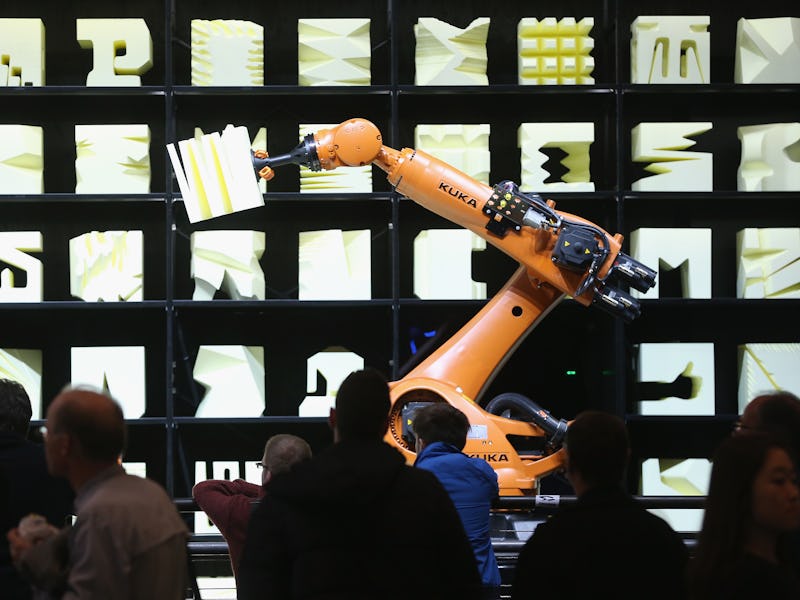The rise of the autonomous car is likely to drive us to a universal basic income says, Elon Musk — and we’re going to need it soon.
During a talk at the World Government Summit Monday in Dubai, Musk said that despite the convenience of autonomous cars, the technology will disrupt a huge portion of the global workforce. He thinks that universal basic income is going to be necessary and that we’re going to need it within 20 years of the first fully autonomous car hitting the road.
“There will be fewer and fewer jobs that a robot cannot do better,” said Musk. “What to do about mass unemployment? This is going to be a massive social challenge. And I think ultimately we are going to have some sort of universal basic income. I don’t think we have any choice.”
The conversation about the massive societal impact of autonomous cars starts at about 45 minutes in to the talk. Musk has said that Tesla could have fully autonomous cars in seven to eight years. This is great for most people, says Musk, but presents a big problem for the 12-15 percent of the world’s workforce who are paid to drive things around.
“We need to figure out new roles for what those people can do because it will be very disruptive and very quick,” said Musk. Once we have self-driving cars, it will only take about 20 years for the entire fleet of vehicles to be autonomous, he said. “That disruption I’m talking about will take place over about 20 years. But still, 20 years is a short period of time to have something like 12-15 percent of the workforce be unemployed.”
Because so many jobs are likely to be replaced with automation between then and now, Musk said that goods and services as becoming very abundant and very cheap. He brought up the idea of neural lace — where the human mind is connected to a computer, essentially — as a way to keep people relevant, but even with a “science-fiction solution,” most jobs are eventually going to be performed better by a robot.
Humans will be unable to compete with automation, and so he says he thinks a universal basic income is the only solution to the unemployment question.
Beyond basic survival, Musk sees a bigger problem that we need to solve in the upcoming thirty years: “The much harder challenge is how do people then have meaning? A lot of people, they derive their meaning from their employment. So if you’re not needed, if there’s not a need for your labor, how do you have meaning? Are you useless? That’s a much harder problem.”
